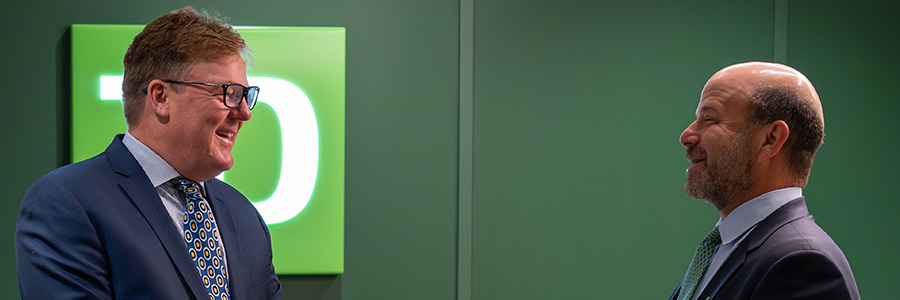By: Joseph Thome, Peyton Bohnsack, Troy Langford, Stacy Ku, Ritu Baral, Tyler Van Buren
Sep. 10, 2024 - 4 minutes 30 seconds
Overview:
- Innovation in the seizure disorder landscape is prepared for growth
- We cover common themes of interest for Key Opinion Leaders (KOL)
- Key topics outlined for investors analyzing a specific program or company
- Analysis and feedback combined to create a framework helping model current and future prescribing trends
In this report, we combine feedback from Key Opinion Leader (KOL) conversations and surveys, topical investor surveys, primary research papers, and our own fundamental analyses to identify key areas of focus both for the seizure disorder field broadly and through the investor lens.
Continued Appetite for Innovation in the Seizure Disorder Landscape
By our analysis, the seizure disorder landscape is heating up with ~130 programs advancing in the pipeline across both public and private companies. We believe the appetite for innovation in the field continues to be strong. While there are 30 commercially approved agents available, there remains substantial room to improve seizure-freedom rates across the paradigm, enhance response rates for refractory patients and advance therapeutics for rare genetic epilepsy conditions.
Key Areas of Focus from the KOL Perspective
Common themes appeared as key areas of focus for the field:
- Better efficacy for refractory seizures
- Improved tolerability to drive better compliance
- Precision neuroscience approaches targeting the specific causes of seizure activity across indications
- Agents that can be effective against multiple co-morbid indications
Key Topics for Investor Focus
On the way to identifying these "holy grail" assets, we believe investors should focus on several key topics when analyzing a specific program or company. These include:
- Appropriateness and translatability of pre-clinical models
- Effective clinical trial designs reflecting the evolving landscape
- An understanding of the target market and moving prescription trends
- Potential take-out potential
We detail each of these key themes in the report. Companies are taking diverse approaches to tackle seizure disorders, and we expect that novel insights into the pathogenesis of seizures, advancements in genetic screening and learnings from first-gen programs will yield several blockbuster therapies over the coming years.
Seizure Disorder Evaluation Framework
We used a combination of both independent analyses and KOL/investor feedback to arrive at our seizure disorder evaluation framework. The two KOL surveys targeted both physicians that treat adult seizure disorders (n=25) and those that treat pediatric populations (n=25). The results from these surveys helped define a picture of current and future prescribing trends, key areas of unmet need and the bar for clinical meaningfulness in ongoing clinical trials for developing therapies. In conjunction, we surveyed investors (n=20) to gauge sentiment on the landscape overall and expectations for key data readouts over the next 12-18 months.
To complement our survey work, we conducted a detailed analysis of pre-clinical translatability across various seizure disorder models and developmental/commercial stage assets to determine which models may be appropriate to characterize activity, depending on mechanism of action and seizure type. In addition, we catalogued each development program in the seizure disorder landscape across more than 70 public and private companies and conducted analyses on addressable market sizes and projected revenue potential. Our report also contains an analysis of historical partnering, licensing and M&A transactions in addition to historical stock performance for the class.
Financial And Industry Model Implications
The results of our investor survey suggest optimism that stocks focused on the seizure disorder space will outperform the XBI over the next three years, with 40% of respondents suggesting the class will substantially outperform (+10% or more) and another 45% of respondents indicating the class will perform 5-10% better. This optimism is potentially well placed as our analysis of a seizure disorder basket climbed 24% over the past three years, outperforming the XBI which gained only 6% over the same period. Our analysis also suggests that seizure disorder IPOs perform well after entering the market. Five of the six IPOs we tracked saw a 33% or greater increase from the offering price in the first month with the remaining stock being flat.
The success and/or failure of individual clinical catalysts and launch metrics will have the largest impact on specific models and stock performance, and we detail key catalysts across our coverage universe below and throughout the piece. Broadly, we expect that several new products will come to the epilepsy space over the next several years which should support the overall market and help offset the erosion of sales of older branded therapies. We expect these new launches to feature products with both improved efficacy/tolerability profiles compared to currently available treatments as well as novel mechanisms of action which could serve as potential combination partners for other therapies and/or address novel epilepsy patient populations.
Specifically from the TD Cowen coverage universe, we expect nine products to generate ~US$5 billion in value in 2030, up from US$1.8 billion in 2023. Of these projected revenues, we expect over US$2 billion will come from products that have yet to launch. Notably, these figures do not contain contributions from several already approved landmark products and not yet approved products in later-stage development for epilepsy indications with the potential to reach the market over the next 5-7 years which would likely add several billion dollars in additional market value if successful. Thus, we believe there remains substantial potential for value creation in the seizure disorder market.
Subscribing clients can read the full report, Trials And Triumphs Of Seizure Disorders - Ahead Of The Curve Series, on the TD One Portal












